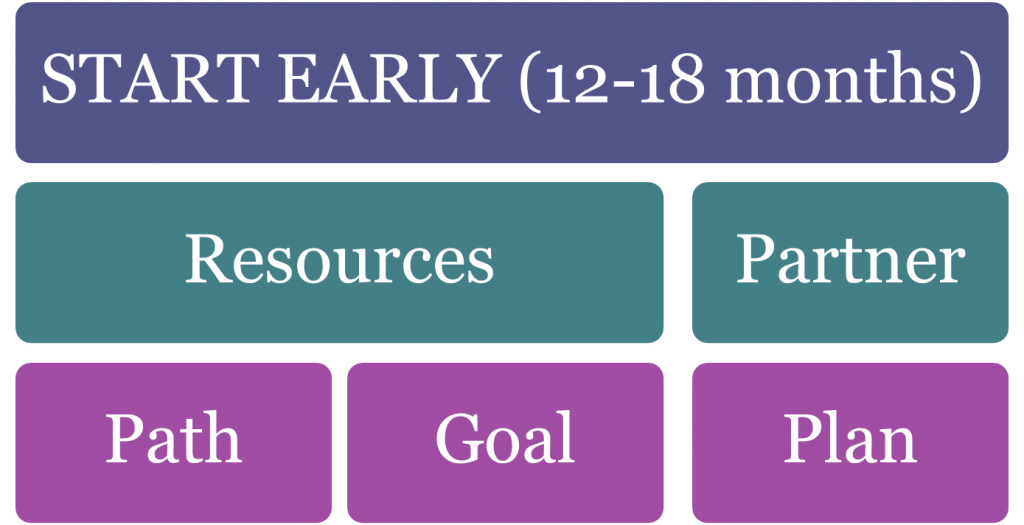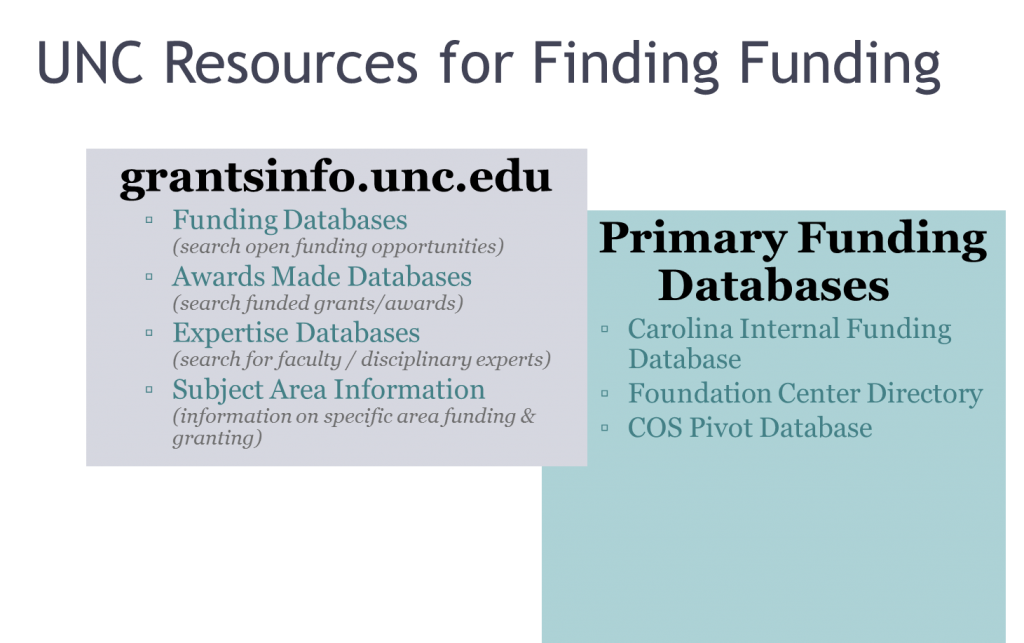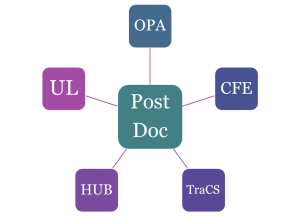Funding Basics
On this page:
Funding Your Research and Scholarly Activities
Finding funding for academic research and scholarly work such as the funding increasingly necessary to support publishing and conference travel or research presentations can seem daunting no matter what stage of your career. Research and academic funding constitutes its own knowledge base that can seem opaque at first.
Often the first time someone seeks funding it is because an immediate need for salary support or project funds has arisen or even because it is an aspect of their professionalization into their careers that has been deemed necessary by their mentor or chair. This situation can pose frustration and high levels of stress around academic funding because it can be very difficult with short notice (less than six months) to find any good matches for your specific funding needs. While it is not impossible to find funding in such short time frames, the process of finding a funding prospect, preparing an application, and submitting your application becomes increasingly compressed and complicated (for example: You are feverishly writing your grant application but your time frame gets unraveled because your most prestigious letter writer is on sabbatical, off campus, and you are having difficulty getting support letters required by your grant application).
The good news is that a little bit of information can get you started on your way and you can learn everything you need to know to become an expert about how funding will work in your particular sphere. This page is intended to help get you started on learning about the basics of funding to assist in your search for support for your research projects. A basis tenet of research funding that is essential is that you should seek to fund the projects that INTEREST YOU and not try to build projects that seem to match funding trends. This is because being passionate about your project will help you write better applications to gain funding as well as to successfully complete the project once it is funded. For questions on grant submission basics, training availability, and other resources please see the links at the bottom of this page.
Funding Planning
Most successfully funded projects often start as ideas and interests for researchers long before any funding search takes place. Even if the final application manipulates the research or ideas a slight amount to align the researcher’s interests with the funder’s requirements, understanding what you want to achieve with your research, why it matters to society, and how to frame that information for funders in advance means you will write better applications. Another benefit of long term planning for funding is that it can also help you with long term planning for publishing and other aspects of your academic career.

Funding generally works in specific cycles most of which are year long cycles – i.e. each year a sponsor (grant or award funding entity) puts out a ‘Call for Proposals’ (CFP) or ‘Request for Proposals’ (RFP) with a submission deadline for that yearly cycle. So what does “planning” mean? It can mean a variety of things depending on the project but a good thing to start with is taking the overview of your long term research goals, breaking them down into steps and pieces. Then see which pieces require or should be funded through extramural (outside) funding. Then you will get a feel for the types of funding you need, the time frames when you will need funding, any resources you might need access to in order to get funding, and whether or not you will need collaborators. Once you have this information, you can begin to make more concrete plans. Click here for a printable “Top Tips” document.
Click here for an excellent printable brochure on addressing sponsor questions about the impacts of your research from the National Alliance for Broader Impacts (although written for NSF requirements, the larger questions and advice are useful for ALL researchers).
Types of Available Funding
Printable list of categories with definitions
Each type of funding has its own generalized characteristics including rough maximum funding amounts as well as features expected in application packages or in the work done for the grant itself. Knowing what type of funding you will need both at specific points and regularly throughout the upcoming few years of your career (and maybe for your whole career) can assist you in developing the skills and gathering the resources to make grant writing for specific areas like publication or awards easier for yourself and eventually your research teams and students as well.
Resources and Postdoctoral Support on Campus

Some helpful resources are available on UNC’s Funding Info Portal for funding searches and learning more about funding opportunities on and off campus, as well as finding out what proposals have been successful in the past and locating possible collaborators. 
There are also many campus offices in place that offer support and resources for postdoctoral research and finding funding as well as other aspects of your professionalization. This series of offices, Office of Postdoctoral Affairs (OPA), The Center for Faculty Excellence (CFE), the University Libraries (UL), the Research Hub (HUB), and the NC TraCS Institute (TraCS) offer support in a range of areas that can assist you with finding funding, completing your research, publication, teaching, and various other aspects of your work and professionalization.
For example, the University Libraries can assist with GIS and Data Services as well as helping researchers prepare bibliographies around their research topics. While, the NC TraCS Institute can assist researchers in all disciplines, especially those interested in collaboration and multi-/inter-/trans-disciplinary research to find funding, view successful proposals, and set up research collaborations.

